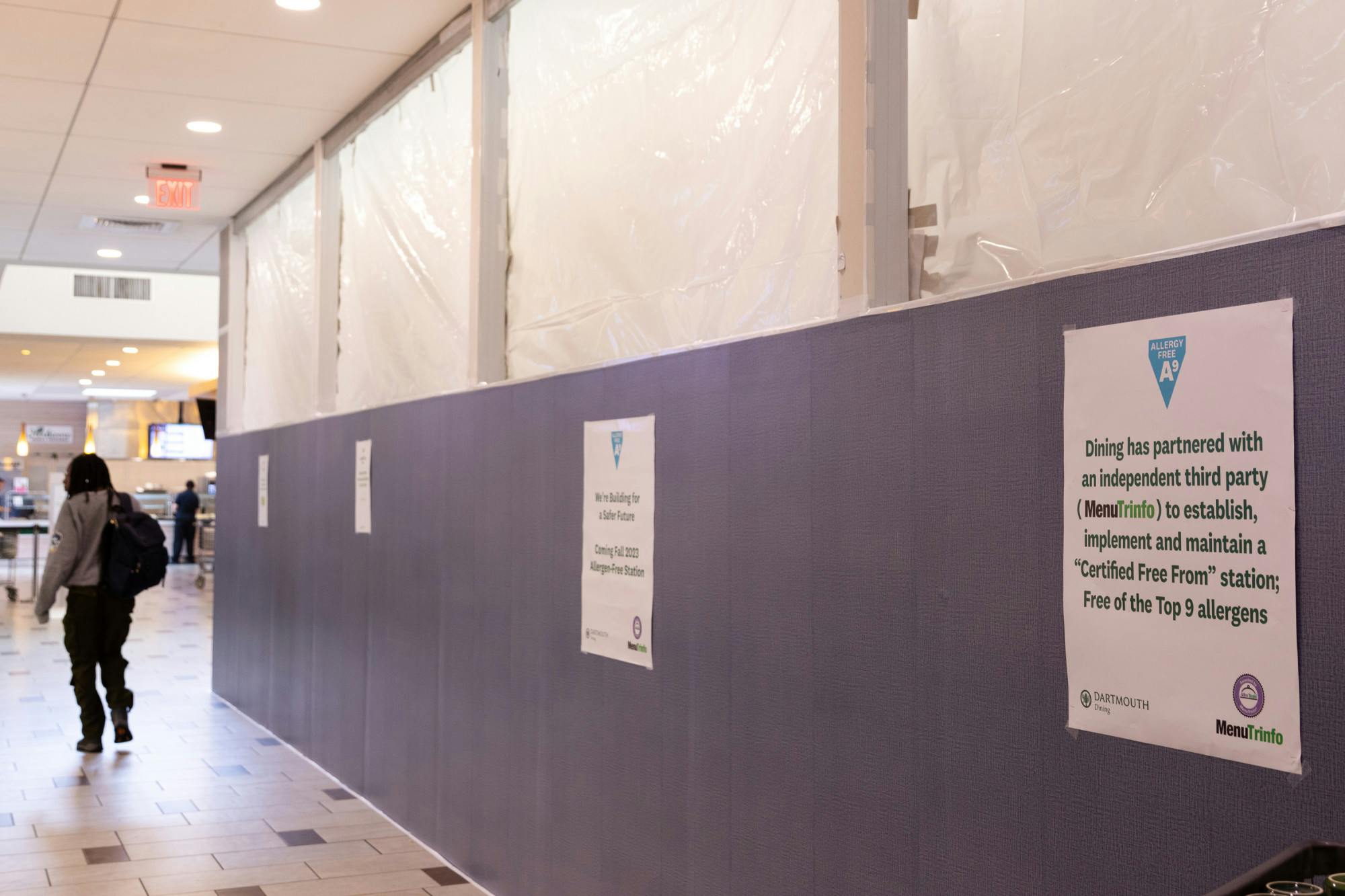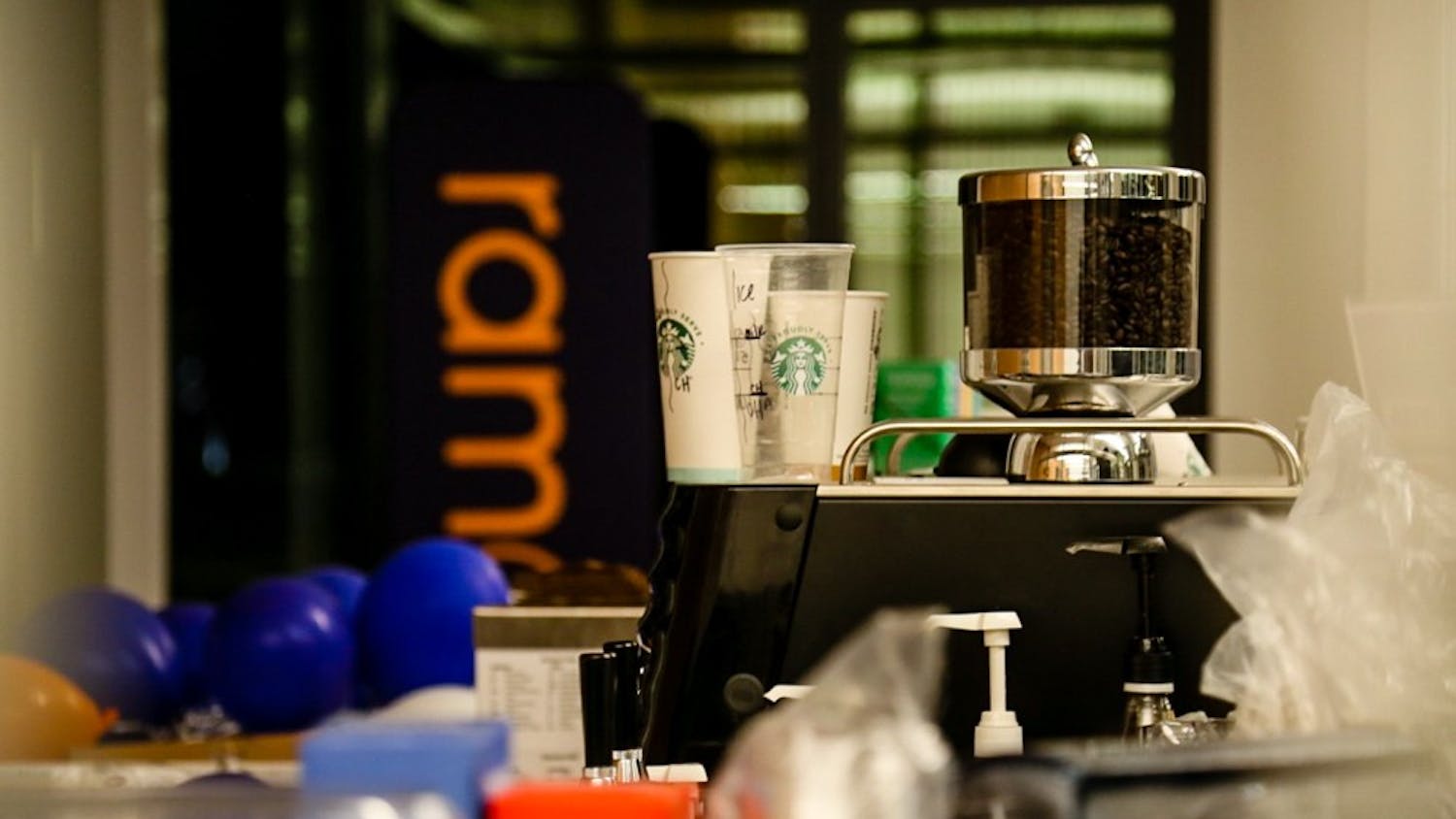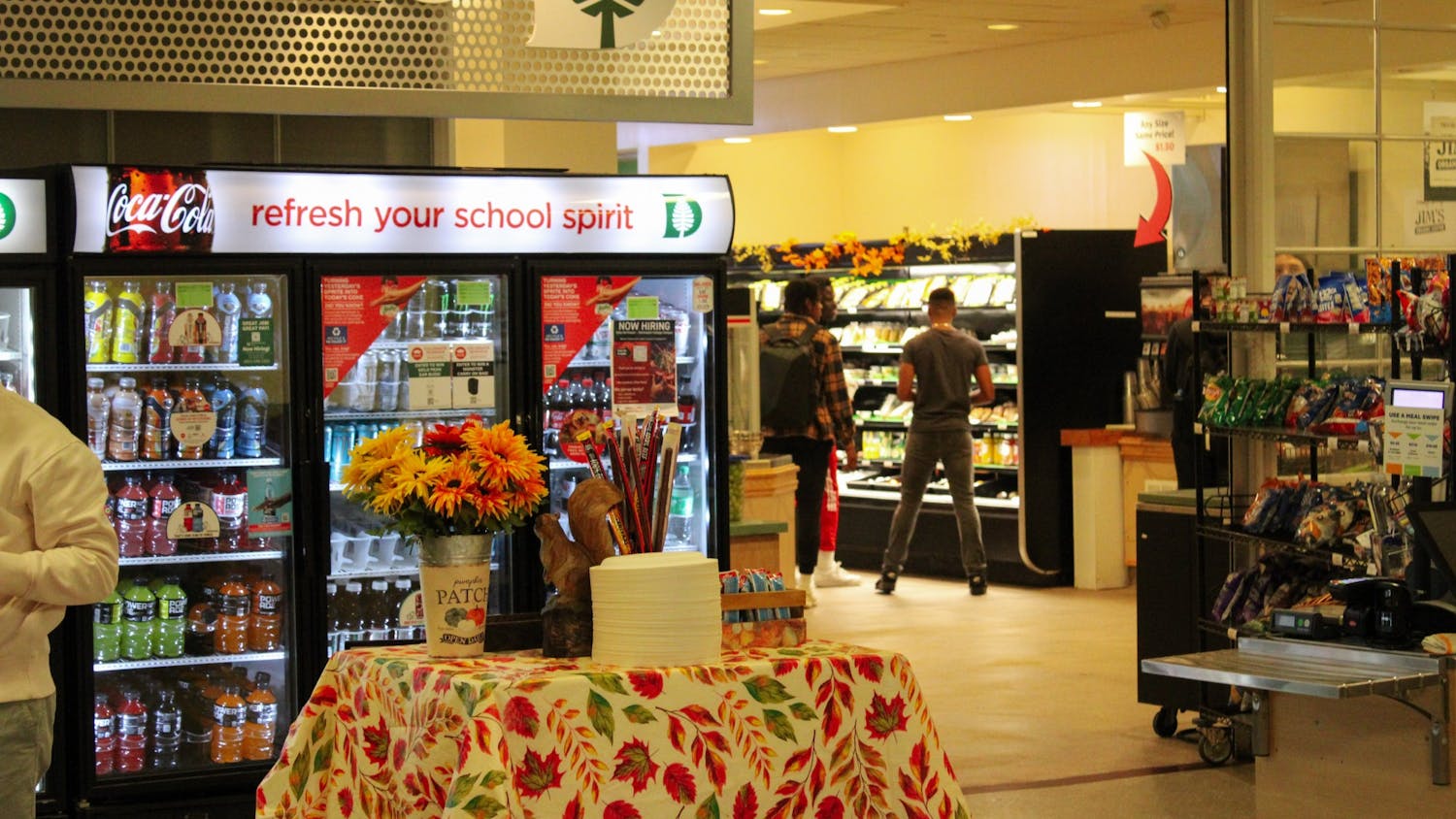The Class of 1953 Commons is currently undergoing renovations to add a new dining station that is free of the top nine allergens: milk, eggs, peanuts, tree nuts, fish, shellfish, wheat and soy, according to Dartmouth Dining director Jon Plodzik. The construction, which began on June 19, is expected to conclude “by mid-August at the latest,” Plodzik said.
According to Plodzik, the construction of an allergen-conscious station is “well overdue.”
“We estimate almost 30% of the student population has some sort of food allergy or concern that prevents them from just eating mainstream, so to speak,” Plodzik said. “We’ve seen over the last five years that people are coming with more than just a single allergy… so it’s not uncommon for us to be dealing with three, four or five allergies per person.”
The station will provide lunch and dinner seven days a week, Plodzik said. Lunch and dinner are Dartmouth Dining’s first priorities for providing allergen-free options because “oftentimes, a lot of breakfast stuff can be prepared without too much problem,” Plodzik added.
On June 22, Dartmouth Dining Services introduced a modified schedule to its on-campus dining locations. While the Class of 1953 Commons, Collis Cafe, Collis Market, The Fern Coffee & Tea Bar, Novack Cafe, Ramekin and Tuck Dining at Byrne Hall will remain open throughout the summer, DDS has reduced their hours of operation. Other locations, such as the Courtyard Cafe, Back of the Napkin, Cafe at Baker and the College’s three snackbars, are closed for the term.
The Courtyard Cafe will be shut down from June 20 through September 8 due to renovations to the Hopkins Center.
Jake Olsen ’25, who suffers from a gluten intolerance, said he feels the closures to some campus dining locations pose an issue for students on campus with dietary restrictions and food allergies.
“I will say, to their credit, Dartmouth Dining does a great job of labeling everything, so it’s easy to tell what’s gluten-free and what’s not,” Olsen said. “The issue is that sometimes there just aren’t that many options. So, I can always go into [Class of 1953 Commons]and know I can have something to eat — you never go hungry particularly — but it’s maybe not the option you’re looking for.”
Adam Alto ’25, who also has a gluten intolerance, said he believes the Class of 1953 Commons and Dartmouth Dining gets “a bad rep.”
“It’s honestly pretty good . . . I think they do a good job, especially Collis and the [Courtyard Cafe],” Alto said.“They don’t really advertise it, but they have a bunch of gluten-free options, like gluten-free wraps and gluten-free pasta and stir fry at Collis Cafe. But they don’t really do a good job of displaying it on the menu, so you have to ask. They are pretty good about making concessions.”
Plodzik said he has been working with registered dietician for nutritional issues Elizabeth Rosenberger to make allergen-free foods available to students with the new station, as well as around campus.
“It’s been a two-year process, but I have been advocating for this myself, and the executive chef [Christopher Kaschak] has been advocating for this for years now because there are just so many students on campus with either food allergies or food intolerances,” Rosenberger said. “And it seems to be getting more and more challenging to make sure that they can eat safely and feel comfortable when they come into the dining hall.”
After construction is completed, MenuTrinfo, a food allergen safety company, will conduct periodic inspections to ensure the ingredients and serving process prevent cross contamination, Plodzik said.
Rosenberger also conducts allergy training classes through MenuTrinfo, which must be taken by everyone who works at the dining facilities full-time, usually within their first 90 days of work.
“I really am super excited that we are to this point because I am a big advocate for the students who have food allergies or need dietary modifications, and it’s important for them to feel and be part of the community,” Rosenberger said. “Meals are so important… I just want everybody to feel that they are included and can be a part of sitting down and enjoying meals with their friends, feeling safe and liking what they’re eating.”
In an effort to eliminate cross contamination, the new station will include its own separate kitchen and serving area as well — in which all the food will be served to students rather than self-serve, according to Plodzik.
Plodzik added that the new station will be where the deli station, which has been moved as a result of construction, was formerly located. He added that while this new section is being made to the Class of 1953 Commons, no offerings will be reduced or stripped from the dining hall; conversely, DDS intend to expand their offerings — such as eventually increasing the size of the salad bar.
“Our intent is really just to add this in its own category and not take away from anything we’re doing,” Plodzik said.




